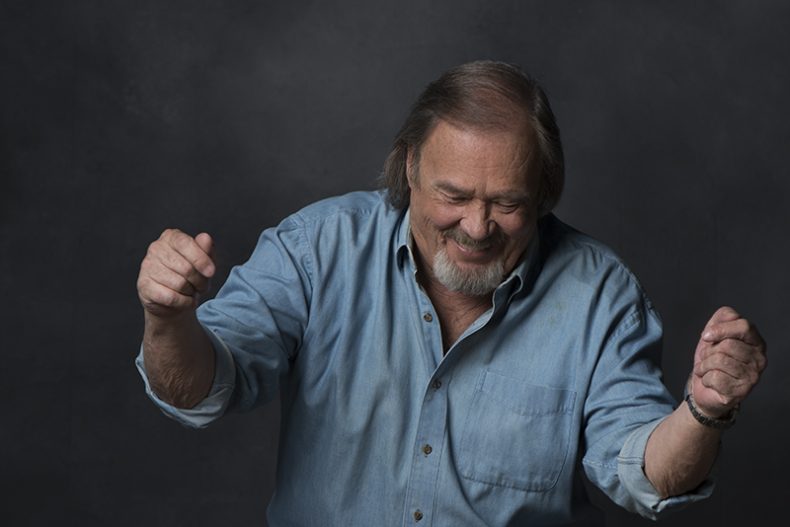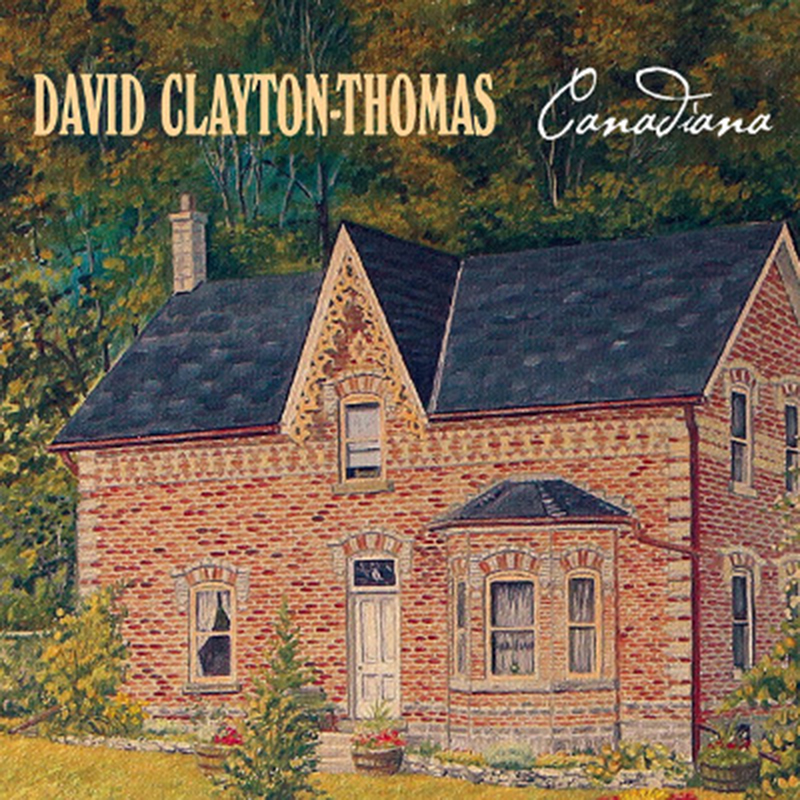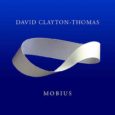ANOTHER SMILING PHASE
AN INTERVIEW WITH DAVID CLAYTON-THOMAS
A tribute to Canada’s most influential songwriters, arranged and performed by one of the greats himself. This is what David Clayton-Thomas, of Blood, Sweat & Tears fame, has crafted on his brand new tribute album Canadiana. The new record features a range of unique interpretations from throughout Canada’s rich musical history. Inspiration for each piece came to Clayton-Thomas from a mixture of firsthand experiences, friendships, and a love for Canadian poetry. We spoke with Clayton-Thomas about his process in creating Canadiana, his memories and relationships with the artists featured on the record, and his own journey to international fame.
SPILL MAGAZINE: So the new album is Canadiana, a collection of tributes to some of Canada’s most influential songwriters. It’s a fantastic selection, and they’re all really beautiful interpretations. How did this project first come about?
DAVID CLAYTON-THOMAS: Well it all started – My co-producer is George Koller, the bassist, and we just started discussions about our [Canada’s] 150th birthday coming up; and morphed into a discussion of how many great Canadian songwriters there have been over the years. So let’s do an album! And we did, it’s a beautiful piece of work; we’re really proud of it, and you’ll hear it next week.
SPILL MAGAZINE: I heard you started with a list of around 100 songs, what was that challenge like, picking the perfect songs?
DAVID CLAYTON-THOMAS: [Laughs] Well the list cut down very quickly, because first of all it’s gotta be a song I want to sing, and suits my voice. Or we can take it somewhere, where I can make the song work. And also we didn’t want to go out looking for obscure songs by Canadian songwriters. We wanted to do the iconic hits, like from “Far Away Places,” “I’ll Never Smile Again,” back in the ‘40s, all the way up to Rush. [Laughs]
SPILL MAGAZINE: Were there any songs that almost made the cut? What might we have seen featured on the record if it were a few songs longer?
DAVID CLAYTON-THOMAS: That’s a good question. You asking me to tell you who I put the axe to?
[Both Laugh]
SPILL MAGAZINE: Maybe we’ll think of it in a nicer way.
DAVID CLAYTON-THOMAS: [Laughs] No, I appreciate the question. You know when we started to whittle it down, we had to focus on the artists that we wanted to interpret, because they all had huge catalogues. So we did a lot of research, where I would take a tune, Youtube it, and go and listen to everybody who ever recorded that song, and then see if we can’t do something fresh or different, or maybe take something from here, something from there and make it work, you know? And that’s how we put it together. We also had Aaron Davis on board and Shauna Rolston, who are two of the most eminent classical musicians in the country. And he did some beautiful string arrangements. Had a guest, Laila Biali, who’s doing a duet with me on Both Sides Now. And Genevieve Marentette, who’s singing with me on “Up Where We Belong,” by Buffy Sainte-Marie.
SPILL MAGAZINE: So did it become more a task of picking specific songs that would work perfectly? As opposed to focusing on which artists you wanted to tribute?
DAVID CLAYTON-THOMAS: I think we started with a framework of these artists, we whittled it down to these great writers, and just went looking into their catalogues. You know, we did a Leonard Cohen piece, and my first choice of course was “Hallelujah,” because I can sing the shit out of that song. But I listened to K.D. Lang’s version of that song and I said, “ah I think I’ll leave that alone.” [Laughs]
SPILL MAGAZINE: She did a really amazing version of that song.
DAVID CLAYTON-THOMAS: Yeah, it’s pretty hard to top that, so we went for “Suzanne” instead.
SPILL MAGAZINE: Some tracks on the record have arrangements very similar to the original, like “Ophelia,” for example. But then you also turn “Heart of Gold” into a reggae song, and “Closer to the Heart” into a Cuban-salsa song. What was your process in coming up with arrangements for each song?
DAVID CLAYTON-THOMAS: [Laughs] Afro-Cuban, oh yeah! Well a friend of mine once said that creativity is the ability to come up with a lot of bad ideas, and genius is the ability to use one of them.
[Both Laugh]
That’s how a project is put together; it’s very much a team effort. It’s a lot of collaboration and meetings in the living room with a couple acoustic guitars, and discussing structures and grooves. And what we can do to this song to make it fresh and interesting, without losing the intent of the writer. In other words I’ve gotta play this for Gordie Lightfoot and I know him so I better do a good job! [Laughs] I better pay respect to his song. But that’s the type of process you go through, and it’s a lot of talking, a lot of discussion before you actually get into the studio.
SPILL MAGAZINE: Do you think some of your new arrangements will make listeners hear these classic songs in a new light? And maybe interpret some new subtleties they had never noticed before?
DAVID CLAYTON-THOMAS: I certainly hope so! And most importantly none of the writers have heard it yet, so I’m interested to get a little feedback from some of the folks, like Buffy and Gordon Lightfoot, and people I know anyways.
SPILL MAGAZINE: You’ve worked with some really amazing musicians throughout your career, from Jaco Pastorius and Blood Sweat and Tears, to Larnell Lewis of Snarky Puppy, who plays on Canadiana. Do any musicians you’ve worked with stand out in your memory as ones who particularly inspired you and helped you in creating music?
DAVID CLAYTON-THOMAS: I mean there’s been so many, you know? That’s a hopeless task – who comes to mind is Lew Soloff who passed away last year. And you’ll note how the “Spinning Wheel” version we did, we transcribed Lew’s solo from the 1969 “Spinning Wheel,” and it was played note for note. A little tribute to my friend. So yeah, Lew was a good friend, and my roomie back in the day when we were on the road, so we knew each other very well.
SPILL MAGAZINE: You mention your song “Spinning Wheel,” made famous during your time with Blood Sweat and Tears. This song is obviously now considered a true classic and genius piece of song writing. What was it like to revisit “Spinning Wheel,” so many years after it was originally recorded?
DAVID CLAYTON-THOMAS: You know, we had a 12-song project lined out, then we signed with ILS, and the guys at the record company said why don’t you include on of your songs on here? And we thought first of doing “You’re The One,” but I’ve already re-recorded it three times and it’s on a live album anyway. And “Spinning Wheel” I haven’t revisited in a long time, so the first discussions were how do we make it different. We discussed doing it with a Jazz piano trio, you know what I mean? Then I said, ‘you know what, I’ve heard big bands do this. Maynard’s band, I heard him play “Spinning Wheel,” Buddy Rich, Woody Herman. Let’s go that way, and get some serious Jazz playing on the tune.’ And stayed true to the original chart. It’s basically… Fred Lipsius is credited as the arranger. It’s Fred Lipsius’ chart [for Blood, Sweat & Tears] from 1969.
SPILL MAGAZINE: You started playing the Yonge Street strip in the early ‘60s, as well as the Yorkville Coffee House scene in later years, both eras now recognized as some of the most significant in the history of Canadian music. I know some of the songwriters you pay tribute to on this record got their start in those days as well. Do you have any memories from those days that really stand out?
DAVID CLAYTON-THOMAS: Well I guess it’s a little nepotism there because yeah, these people are friends of mine. So obviously when putting together the repertoire, I was influenced by that. I was in awe of Joni Mitchell when she played at the Riverboat in Yorkville. I worshipped her from afar; she was really something. And her lyrics — you know, I think one of the reasons for making the record is that there’s something very unique and very distinct about Canadian songwriters. We have a certain poetry, we’re very literate. Leonard Cohen is like an abstract painting, you know what I mean? It’s just — it’s that beautiful. We have that uniquely in Canada here I think; it runs through all of our songwriters. Ron Hynes, you know? It’s just absolute poetry, Newfoundland poetry.
SPILL MAGAZINE: You’ve always had a really innovative way of incorporating Jazz elements into rock ‘n’ roll; in fact, you were somewhat of a pioneer of this style. Which artists were influencing you at a young age to develop this way of composing music?
DAVID CLAYTON-THOMAS: Well again it goes back to Yorkville because Yorkville was everything from Folk, like Gordie Lightfoot and people like that to heavy Blues, John Lee Hooker played there, to Jazz with Oscar Peterson and Moe Koffman playing in the village. So Jazz was I think ingrained in the Toronto sound and always has been, as is rhythm and blues.
SPILL MAGAZINE: Do you think your personal experiences and relationships change how you hear these artists’ songs, and how you go about paying tribute to their work?
DAVID CLAYTON-THOMAS: I may be more careful! [Laughs] You know of course we were very cognizant of the fact that these guys are our contemporaries, they are our friends, and they are huge figures in Canadian music. So you have to do them right, you have to do them proud, as they say.
SPILL MAGAZINE: You mentioned Joni Mitchell in the Yorkville scene being a really amazing experience. Do any other memories stand out involving the artists covered on this album?
DAVID CLAYTON-THOMAS: Well some of the artists of course I don’t know, some of them are probably no longer with us because we went all the way back to the ‘40s for songwriters. Contemporaries though – well Neil Young, I’m interested to see how he likes his song as a reggae. [Laughs] I may get an email from him.
SPILL MAGAZINE: You achieved worldwide fame with the band Blood Sweat and Tears, after moving to the states. Were there any big differences between Toronto, and Canada’s music scene vs. New York and America’s that you found?
DAVID CLAYTON-THOMAS: No, they were very similar. Yorkville was an extension of Greenwich Village. All the Greenwich Village club acts that played on Bleecker Street played in Toronto also. So there’s a tremendous interchange. Always was. That’s what made Yorkville so vital. We had Lonnie Johnson up from the States, and he became a resident here. He profoundly influenced the way young guitar players play in this town.
SPILL MAGAZINE: That first record with Blood Sweat and Tears was a huge deal — you beat out Abbey Road for a Grammy win, and performed high on the bill at Woodstock. How did you handle the experience of achieving worldwide fame so quickly?
DAVID CLAYTON-THOMAS: Well of course it’s a whirlwind, a high-tension high-pressure environment you find yourself in. You’re playing a club to 200 people on Bleecker Street one night, then two weeks later you’re in Madison Square Garden, you know? It happened that fast for us, and it burned very very hot for about three or four years, and then it burned out! [Laughs]
SPILL MAGAZINE: You consider The Band to be the greatest rock ‘n’ roll band of all time; do you think you connected with them on some level because both The Band and Blood Sweat and Tears were a mix of American and Canadian musicians? Or did that connection never really matter to you?
DAVID CLAYTON-THOMAS: No, that connection didn’t enter my mind. I wanted to do it because of all the guys in The Band, and I knew them very well, I knew Levon the best. In later years he lived in Woodstock New York, I lived in Nyack New York, and we got to see each other quite a bit. Anyways, we listened to his performances of “Ophelia” as a solo artist, and also The Band’s version of it, and they both featured big horn sections, almost like Dixie band horns you know? So we decided that we would take it back to the sound of The Band as we heard them, in 1964 at Le Coq d’Or. You know piano, B3, guitar, bass and drums. So that was the direction for the song. We even brought in a drummer, Lowell Whitty, who’s known for being a complete Levon Helm nut. He plays exactly like him. Levon was his hero. So that’s the story for “Ophelia.” It came off pretty good eh?
SPILL MAGAZINE: Yeah, it sounds great! So the performances you’re describing in 1964, would they still have been performing as The Hawks?
DAVID CLAYTON-THOMAS: Yeah! I played with that band. I had lots of times when I’d go in and do a week or two with The Hawks. So Ronnie could go in the crowd and socialize, and someone else could do the singing.
[Both Laugh]
SPILL MAGAZINE: Do you find there is/or was something special and unique about our music community here in Canada?
DAVID CLAYTON-THOMAS: I think there’s always been something special about Canadian music. We have a real reverence for our songwriters and our creative people up here. It’s really part of our culture.
SPILL MAGAZINE: As you mentioned earlier, Canadian songwriters always seem to have a way with writing very poetic lyrics. Why do you think that is?
DAVID CLAYTON-THOMAS: You know, a lot of it has to do with the fact that when you start off in Canada, you ain’t never gonna get rich. Your only hope is getting discovered across the border. So it focuses the artist more on the art. We have always been extremely artistic, musically and most particularly lyrically, that’s the most important to me as the singer, — the lyrics. We just have a culture of it. I said on the album cover, our songwriters are the poet laureates of Canadian culture, and I believe that.









